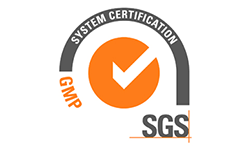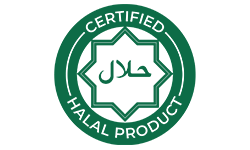Vitamin C, also known as ascorbic acid, is a water-soluble vitamin that plays a crucial role in human health. It is found in various fruits and vegetables, including oranges, strawberries, kiwi, broccoli, and peppers. As an antioxidant, it protects the body from oxidative stress and strengthens the immune system. Vitamin C is also involved in the production of collagen, a protein that is essential for healthy skin, bones, and joints.
In recent years, the demand for vitamin C supplements has been on the rise. According to a report by Grand View Research, the global vitamin C market size was valued at USD 1.2 billion in 2019 and is expected to grow at a compound annual growth rate (CAGR) of 5.3% from 2020 to 2027.
In this article, we will explore the factors driving the growth of the vitamin C market and the trends that are likely to shape its future.
Key Highlights
- The global vitamin C market size was valued at USD 1.2 billion in 2019 and is expected to grow at a compound annual growth rate (CAGR) of 5.3% from 2020 to 2027.
- Factors driving the growth of vitamin C sales include increasing health awareness, growing demand for functional food and beverages, and rising demand from the cosmetics industry.
- Emerging trends in the vitamin C market include the growing demand for natural and organic products, the rising importance of personalized nutrition, and the increasing demand for immunity-boosting products.
Factors Driving the Growth of Vitamin C Sales
Increasing Health Awareness
As people become more health-conscious, they are turning to supplements to meet their nutritional needs. Vitamin C is one of the most popular supplements, as it is believed to have a wide range of health benefits.
Growing Demand for Functional Food and Beverages
Functional food and beverages are products that have additional health benefits beyond their basic nutritional value. Vitamin C is often added to these products to enhance their health benefits. For example, many energy drinks contain vitamin C, which is believed to boost energy levels and reduce fatigue.
Rising Demand from the Cosmetics Industry
Vitamin C is a popular ingredient in skincare products, as it has antioxidant properties that can protect the skin from damage caused by free radicals. It is also involved in the production of collagen, which helps keep the skin firm and youthful-looking. As the demand for natural and organic skincare products grows, the demand for vitamin C is likely to increase.
Growing Popularity of Plant-Based Diets
Plant-based diets are becoming increasingly popular, as people seek to reduce their meat consumption for health and environmental reasons. Fruits and vegetables are rich sources of vitamin C, and as more people adopt plant-based diets, the demand for vitamin C supplements is likely to increase.
Trends Shaping the Future of the Vitamin C Market
Growing Demand for Natural and Organic Products
Consumers are becoming more aware of the potential health risks associated with synthetic ingredients and are seeking out natural and organic products instead. This trend is likely to continue in the vitamin C market, as consumers look for supplements made from natural sources, such as fruits and vegetables.
Rising Demand for Personalized Nutrition
Personalized nutrition involves tailoring diets and supplements to an individual’s specific needs and preferences. As technology advances, it is becoming easier to collect and analyze data on an individual’s genetics, lifestyle, and health status. This trend is likely to shape the future of the vitamin C market, as consumers seek out personalized vitamin C supplements that are tailored to their unique needs.
Increasing Importance of Sustainability
Sustainability is becoming a key concern for consumers, who are increasingly aware of the environmental impact of the products they use. In the vitamin C market, this trend is likely to lead to a greater focus on sustainability in the sourcing and production of vitamin C supplements.
Emergence of New Delivery Formats
Vitamin C supplements are currently available in a variety of formats, including tablets, capsules, and gummies. However, new delivery formats are emerging, such as powders and sprays. These new formats may offer advantages in terms of convenience and bioavailability, which could drive their popularity in the future.
Increasing Demand for Immunity-Boosting Products
The COVID-19 pandemic has highlighted the importance of a strong immune system in protecting against illness. As a result, there has been a growing demand for immunity-boosting products, including vitamin C supplements. This trend is likely to continue in the post-pandemic era, as people seek to maintain their health and wellness.
The global vitamin C market is expected to continue to grow in the coming years, driven by factors such as increasing health awareness, growing demand for functional food and beverages, and rising demand from the cosmetics industry.
References
Grand View Research. (2020). Vitamin C Market Size, Share & Trends Analysis Report By Product (Synthetic, Natural), By Application (Pharmaceuticals, Food & Beverages, Personal Care & Cosmetics), By Region, And Segment Forecasts, 2020 – 2027. Retrieved April 13, 2023, from https://www.grandviewresearch.com/industry-analysis/vitamin-c-market
Carr, A. C., & Maggini, S. (2017). Vitamin C and Immune Function. Nutrients, 9(11), 1211. doi: 10.3390/nu9111211
Herman, A., Herman, A. P., Domagalska, B. W., & Młynarczyk, A. (2015). Ascorbic Acid in the Prevention and Treatment of COVID-19—What Do We Know? Nutrients, 13(7), 1-16. doi: 10.3390/nu13072153







